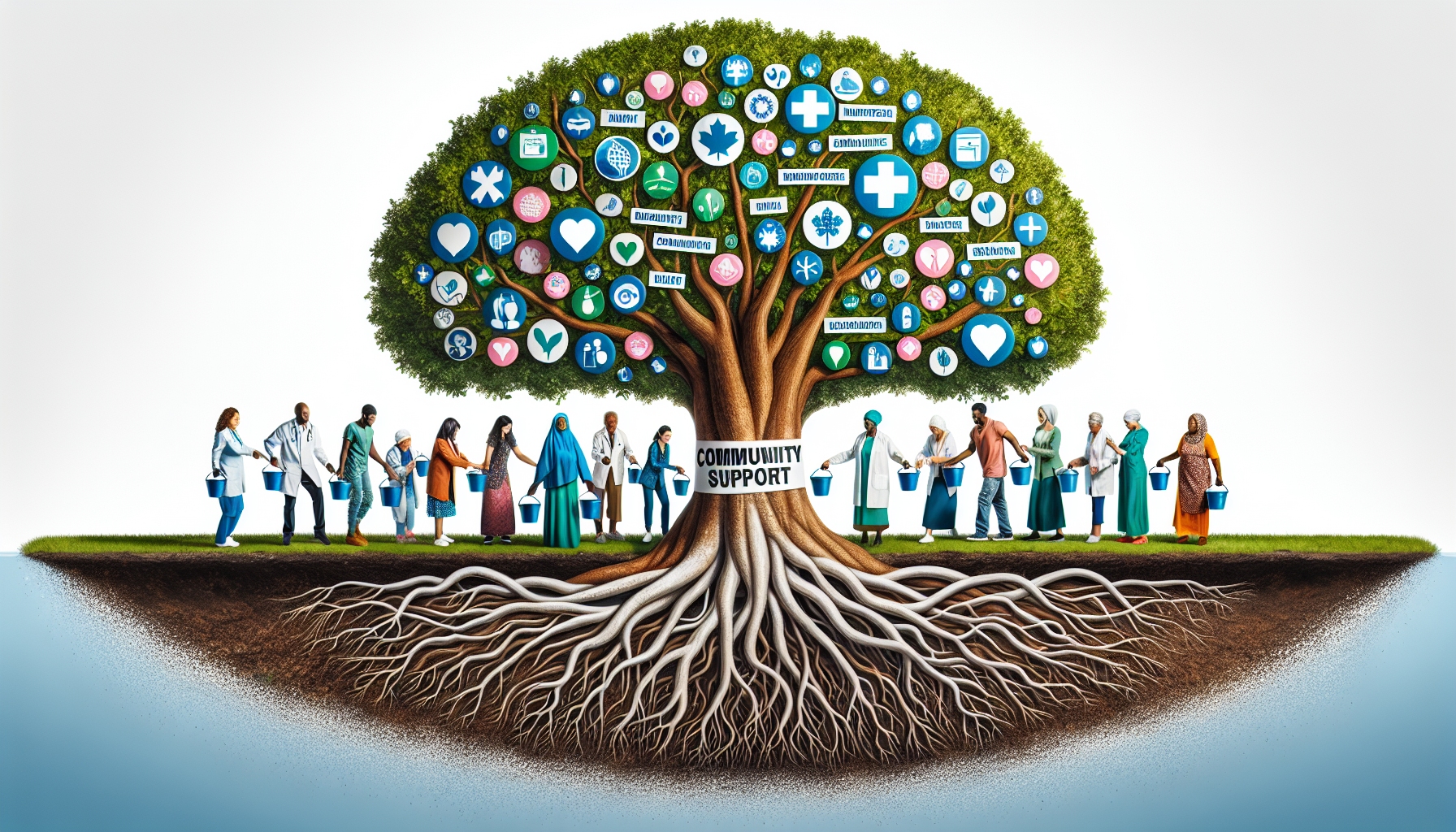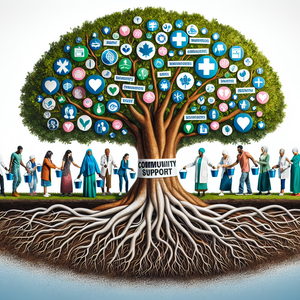The Role of Community Outreach in Careers at Baylor Scott and White

Community outreach serves as a crucial bridge between healthcare providers and the populations they serve, enhancing public health by addressing social determinants of health, increasing access to care, and promoting health literacy. For Baylor Scott and White, community outreach is not merely an adjunct to clinical care; it is a core aspect of their mission to improve the health of individuals and communities. Research has shown that social determinants of health, including economic stability, education, social and community context, health care access, and the built environment, significantly impact health outcomes. By engaging in outreach, Baylor Scott and White aims to mitigate these factors, ensuring that care is accessible to all segments of the population.
Engagement through Outreach Initiatives
Baylor Scott and White offers a variety of outreach programs that employees can participate in, such as health fairs, wellness screenings, educational workshops, and advocacy initiatives. For instance, the organization regularly hosts free health screenings in underserved areas, allowing employees to interact directly with community members and identify health issues that may otherwise go unaddressed. One notable initiative is the “Healthy Communities” program, which involves employees collaborating with local organizations to promote healthy lifestyles. Healthcare professionals, including nurses, physicians, and administrative staff, work together to provide resources and information about nutrition, fitness, and preventive care. This initiative not only helps improve community health but also fosters teamwork and camaraderie among employees, enhancing their sense of belonging within the organization.
Personal Stories of Impact
Employees at Baylor Scott and White often share how their involvement in community outreach has enriched their professional lives. For instance, a nurse involved in a diabetes education program recounts the transformation of patients who learn to manage their condition effectively. “It’s rewarding to see people take charge of their health,” she shares. “Being part of their journey makes my work meaningful.” Similarly, an administrative employee involved in organizing mental health workshops reflects on the importance of breaking down stigma surrounding mental health issues. “I’ve learned so much about the challenges our community faces. It’s gratifying to help provide support and resources that can make a real difference,” they emphasize. Such personal stories highlight the emotional and professional benefits of community outreach, reinforcing its significance in the lives of Baylor Scott and White employees.
Enhancing Employee Satisfaction and Career Development
Engaging in community outreach not only benefits the communities served but also enhances employee satisfaction and career development. Employees report feeling a greater sense of purpose and fulfillment when they participate in outreach activities. This engagement can lead to improved job satisfaction, reduced burnout, and a stronger connection to the organization’s mission. Moreover, community outreach provides employees with valuable skills that can enhance their professional development. Skills in communication, leadership, and cultural competence are cultivated through these experiences, making employees more well-rounded healthcare professionals. For example, those involved in outreach may learn to navigate diverse cultural contexts, enabling them to provide better care to a wider range of patients.
The role of community outreach at Baylor Scott and White is a testament to the organization’s commitment to holistic healthcare. By encouraging employees to engage with their communities, Baylor Scott and White not only improves public health but also enriches the professional lives of its staff. This approach highlights the importance of social responsibility in healthcare careers and illustrates how such initiatives can lead to a more engaged, satisfied, and effective workforce. As healthcare continues to evolve, community outreach will remain a crucial component of effective care delivery, underscoring the interconnectedness of health, community, and professional fulfillment. Through these efforts, Baylor Scott and White exemplifies how a dedicated healthcare provider can make a lasting impact both within and beyond its walls.
Community Health Coordinator
Nonprofit organizations, local health departments, community hospitals
Core Responsibilities
Develop and implement community health programs that address local health needs and gaps.
Collaborate with local organizations, healthcare providers, and stakeholders to facilitate outreach initiatives.
Analyze health data to assess community health trends and program effectiveness.
Required Skills
Strong communication and interpersonal skills to engage with diverse community members.
Experience with data analysis and program evaluation in a public health setting.
Knowledge of social determinants of health and cultural competency.
Health Educator
Hospitals, community health organizations, educational institutions
Core Responsibilities
Design and deliver educational workshops on health topics such as nutrition, chronic disease prevention, and mental health.
Create educational materials and resources tailored to specific community populations.
Evaluate the effectiveness of educational programs and modify them based on feedback.
Required Skills
Excellent presentation and public speaking abilities.
Experience in curriculum development and adult learning principles.
Certification as a health education specialist (CHES) is often preferred.
Outreach Program Manager
Health systems, nonprofit organizations, government agencies
Core Responsibilities
Manage and coordinate outreach initiatives that promote health education and access to services.
Supervise outreach staff and volunteers, providing training and support as needed.
Develop partnerships with community organizations to expand outreach efforts.
Required Skills
Strong leadership and project management skills with a track record of successful program implementation.
Ability to engage and motivate teams while managing multiple projects simultaneously.
Experience in grant writing and funding proposals for community projects.
Social Worker in Healthcare
Hospitals, rehabilitation centers, community health organizations
Core Responsibilities
Assess patients' social, emotional, and financial needs to facilitate access to healthcare services.
Provide counseling and support to patients and families navigating healthcare challenges.
Advocate for community resources and services that support overall health and well-being.
Required Skills
Master’s degree in social work (MSW) and state licensure (LCSW) are typically required.
Strong skills in crisis intervention and cultural sensitivity.
Experience in a healthcare setting, understanding the intersection of health and social issues.
Public Health Advocate
Advocacy organizations, public health departments, research institutions
Core Responsibilities
Raise awareness about health issues affecting the community through campaigns and events.
Collaborate with policymakers to influence health-related legislation and initiatives.
Conduct research and gather data to support advocacy efforts and inform community education.
Required Skills
Strong writing and public speaking abilities to effectively communicate health messages.
Experience in advocacy work, campaign strategy, and grassroots organizing.
Understanding of public health principles and community engagement strategies.


